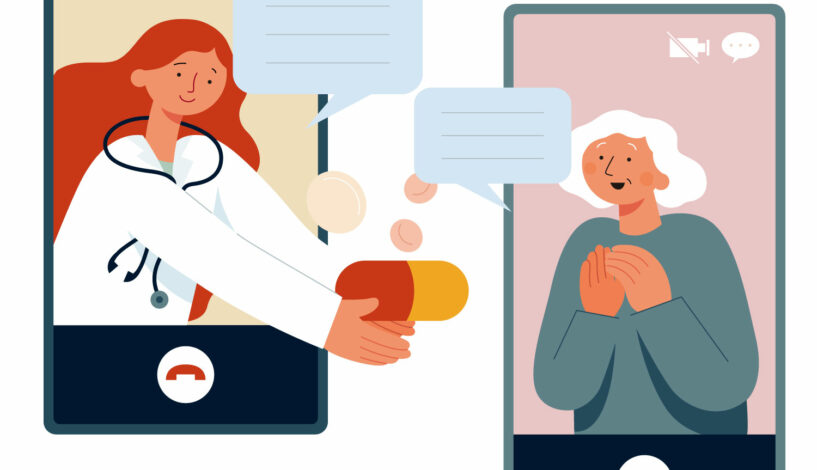
When is Telehealth a Good Option?
When is Telehealth a Good Option?
Telehealth, also known as telemedicine, is the use of technology to deliver healthcare services remotely. In recent years, telehealth has become increasingly popular due to its convenience and cost-effectiveness. With the rise of the COVID-19 pandemic, telehealth has also proven to be a crucial tool for providing healthcare services while maintaining social distancing measures. This allows patients to receive medical advice and treatment from the comfort of their own homes, without the need for them to travel to the hospital or clinic. This is especially beneficial for patients with mobility issues, those who live in remote areas, or those who have busy schedules.
Welcome to the era of virtual healthcare! Uncover the best use cases for telehealth services that are transforming patient care and medical practice.
- Urgent Care: One of the most common use cases for telehealth is for management of urgent medical issues such as simple nasal congestion, urinary tract infections, rashes, etc., that often do not require in person care.
- Chronic Condition Management: Telehealth can be used for the management of chronic conditions such as diabetes, hypertension, and heart disease. Patients can track their vital signs, such as blood pressure, blood glucose levels, and heart rate at home and share the data with their healthcare provider. This allows the clinician to monitor their patients’ conditions in real-time and make necessary adjustments to their treatment plans. This can lead to better control of their chronic condition and helps reduce the risk of complications.
- Behavioral Health Services: Patients can receive medication management as well as counseling and therapy sessions via video conferencing or, in some circumstances, phone calls. Telehealth can also help reduce any reservations the patient may have about seeking mental health services, as patients can receive treatment from the comfort and privacy of their own homes.
- Follow-up Post-Hospitalization: Telehealth can be used for follow-up appointments after surgery or hospitalization. Patients can receive post-operative care instructions and check-ins with their healthcare providers via video conferencing or, in some cases, phone calls. This allows patients to receive timely care and helps reduce the risk of complications without having to return to the hospital or clinic for in-person appointments.
- Remote Monitoring: Telehealth can also be used for remote monitoring of patients with chronic conditions or those who have been discharged from the hospital. Healthcare professionals can use remote monitoring devices to track patients’ vital signs and other health indicators and receive alerts if there are any concerning changes. This allows healthcare providers to intervene early and help prevent complications or hospital readmissions.
- Preventive Care: Telehealth can also be used for preventive care, such as annual check-ups. This can help patients stay up-to-date with their preventive care needs and help reduce the risk of developing serious health conditions.
- Rural Healthcare: Telehealth can also be used to provide healthcare services to patients in rural or remote areas. Patients in these areas often have limited access to healthcare services due to geographic barriers. Telehealth can help bridge this gap by allowing patients to receive medical care from healthcare professionals who are in other parts of the country. This can help improve patient outcomes and reduce the need for patients to travel long distances to receive medical care.
Fast Pace Health’s telehealth services can be accessed from a smartphone, computer, or tablet in Tennessee, Kentucky, Mississippi, Louisiana, Indiana, and Alabama with professionals available to patients seven days a week. The services are covered by most insurance plans, including Medicare and Medicaid, and offer a convenient, cost-effective solution for those who require medical care but cannot visit a clinic in person.
Dr. Sarika Aggarwal, Chief Medical Officer at Fast Pace Health, explains what makes Fast Pace Health’s Telehealth service unique. “The Telehealth service at Fast Pace is unique from other telehealth services available today as our providers are partners with the Fast Pace Health Urgent Care and Primary Care clinics. This allows Fast Pace Health’s Telehealth providers to order labs or diagnostics and transfer patients to in-person care in our urgent care clinics, as well as helping ensure the patients get the longitudinal care they need with our primary care clinics.”
Fast Pace Health Telehealth is open daily Monday through Friday from 8 a.m. to 8 p.m. CST. Saturday hours are 8 a.m. to 6 p.m. CST, and Sunday hours are 1 p.m. to 5 p.m. CST.
To learn more about Fast Pace Health telehealth services, visit fastpacehealth.com/service/telehealth/ or contact us at (877) 542-2637.
Related Resources


